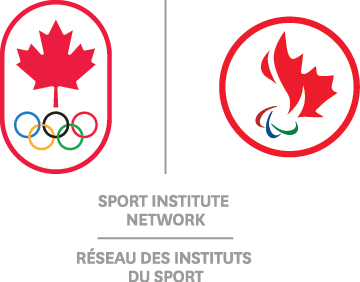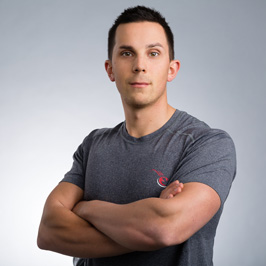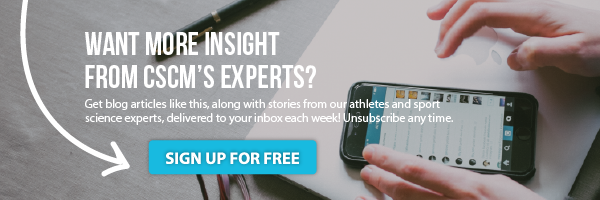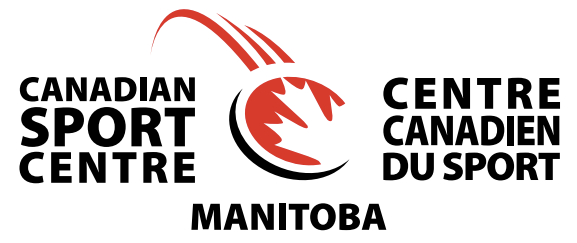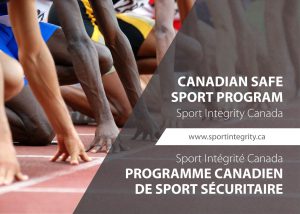S&C: The Epicentre of the IST
Matthew Davey is CSCM’s newest strength and conditioning coach. In this Q&A, he shares why he loves his job, and what it takes to become an elite-level S&C coach.
When family and friends ask what you do, how do you explain it?
I’m a strength coach. Something people might not realize is that it can been seen as somewhat derogative for high-level strength coaches to be called “trainers.” Often people assume that my role is similar to being a personal trainer, but S&C is unique. We work at enhancing physical abilities, weight conditioning and working the appropriate energy systems. Exactly what we do is a bit dependent on the sport. Hockey players, for example, focus on intervals, so their training mimics those practice and game conditions.
What’s the most common question you get asked?
“How often do you personally work out?” “What do you do for workouts?” People aren’t as interested in the athletes and sports I work with as they are my personal routine. They always want to know, “Do you practice what you preach?”
What’s one thing you wish people would ask but they never seem to?
Selfishly, I’d love people to ask about what it takes to become an S&C coach for high performance athletes. While it’s definitely a fun job, there is a lot more to it than just getting paid to work out. Most of my colleagues in this discipline have advanced degrees, often master’s or PhD level, plus other certifications – and there’s a level of knowledge and expertise that comes with that education. The work it takes to become a strength and conditioning coach for elite level athletes isn’t all fun.
What’s your favourite part of the job?
Interacting with the athletes. I would say it’s one of my strengths. I think I’m good at reading my athletes and getting what I want from them in terms of performance. I have a different approach than others: The way I train athletes isn’t army drill-sergeant style, and it isn’t gentle or subdued, but somewhere in between.
What motivated you to take this career path?
Playing sports, I got injured a few times and had a several run-ins with physiotherapists. For a while I thought that physio was going to be the way for me, but I didn’t like it. I enjoyed sciences and anatomy the most when doing my undergrad. I did a fourth-year S&C internship, and then a graduate degree in a similar field, and I was instantly hooked on S&C.
“I enjoy the continuity – I get to take the athlete somewhere, and help them reach their goals and objectives.”
I think strength coaches are the epicentre of the IST (integrated support team), and are often underused on that team. I communicate with coaches regularly, and I connect with athletes on elements of their game they might not always share with their coach.
Do you have a favourite sport or demographic to work with?
Previously it was hockey, from my personal background. I’ve always liked power sports and team sports, and that’s certainly in my wheelhouse. But I find it’s best to strike a balance between finding your niche or specialty, while still making sure not to limit yourself by only working with one sport. While every sport is unique, in reality many use essentially the same science. Each and every energy system applies to a number of different sports.
What’s the biggest challenge you face in a day?
Separating my job from my everyday life can be a challenge. I enjoy what I do, so it doesn’t always feel like a job. There’s always something new and cutting edge to stay up-to-date on. We’re here to serve the athletes and we’re at their disposal, so it’s hard to figure out when to prioritize your life. How do you know when is the day over? Sometimes coaches and trainers see 10- to14-hour days, and it burns you out in a big way. Some people are good at turning their work on and off, but it can be pretty difficult.
What’s your biggest accomplishment?
The relationships I’ve developed with athletes. When I decided to leave Queen’s to come to CSCM, I had less than a month to move and transition. When I went for dinner with some of my colleagues before I left, there were 400 athletes who showed up to celebrate.
What’s something people might be surprised to learn about you?
I’m a lot more emotionally invested in most endeavours than people would think. Not in a bad way – some coaches have their identity wrapped up in their athletes’ results. I’m emotionally invested in the process, not the outcome. To be in this business, you have to care about others.
Favourite quote?
“The best program is useless without great coaching. And great coaching can make a mediocre program great.”
